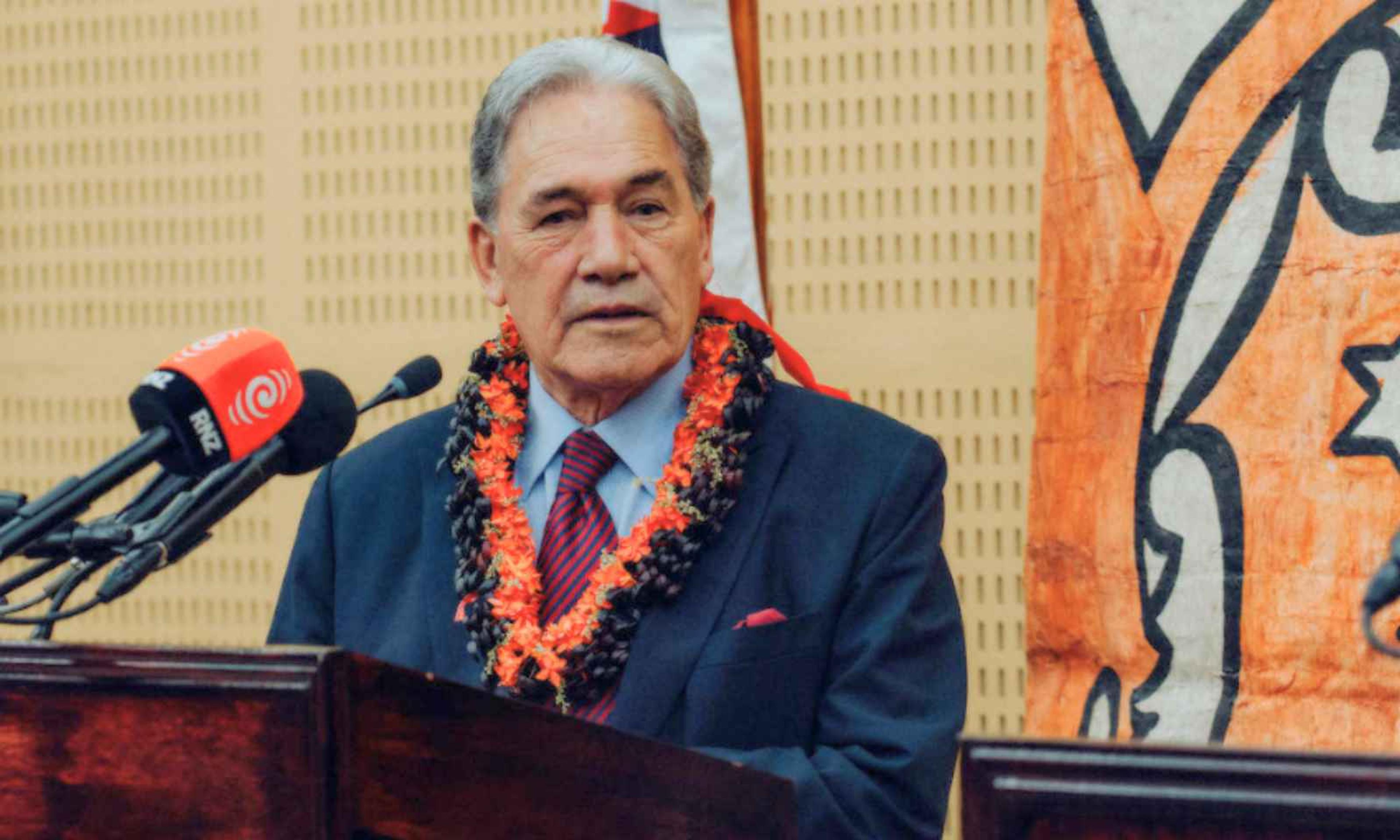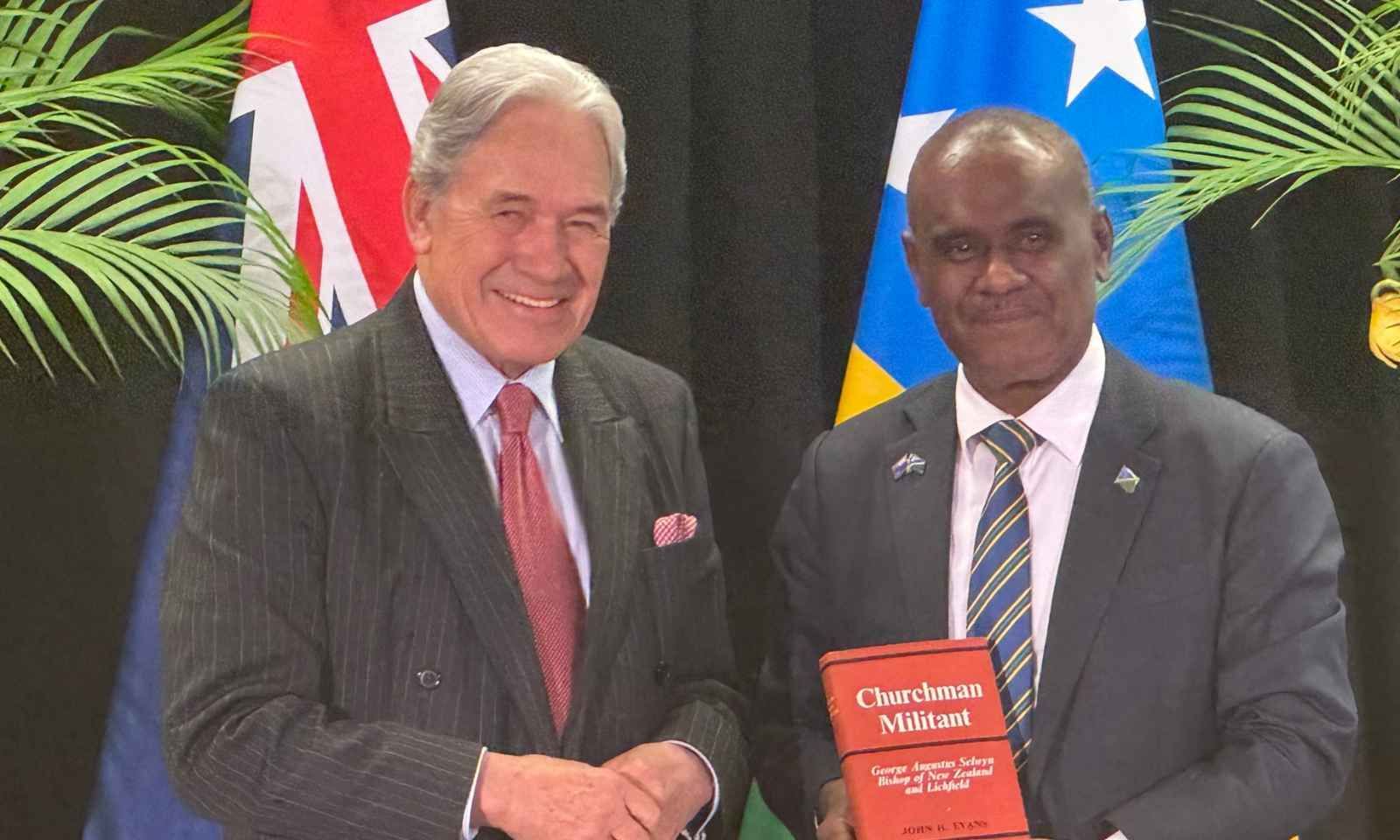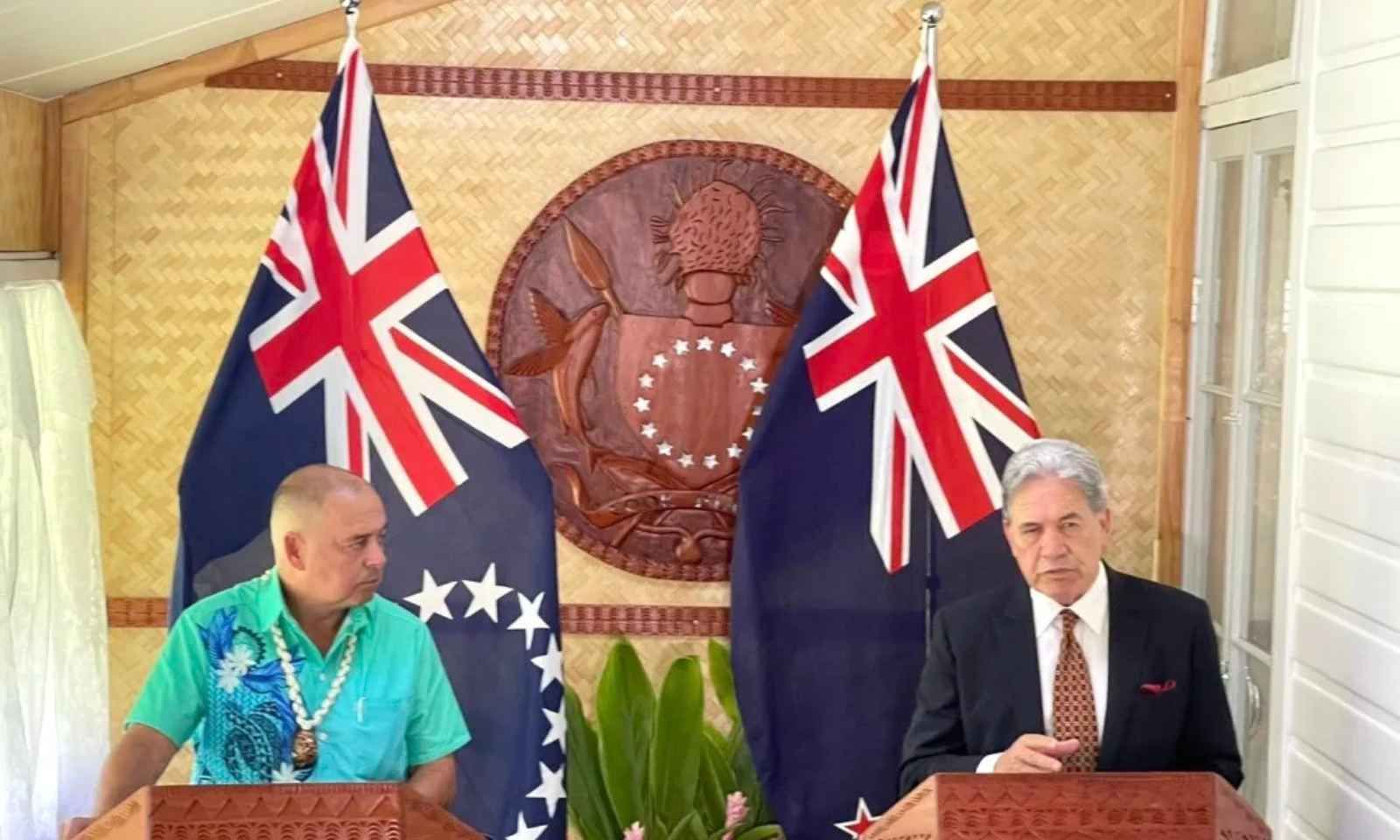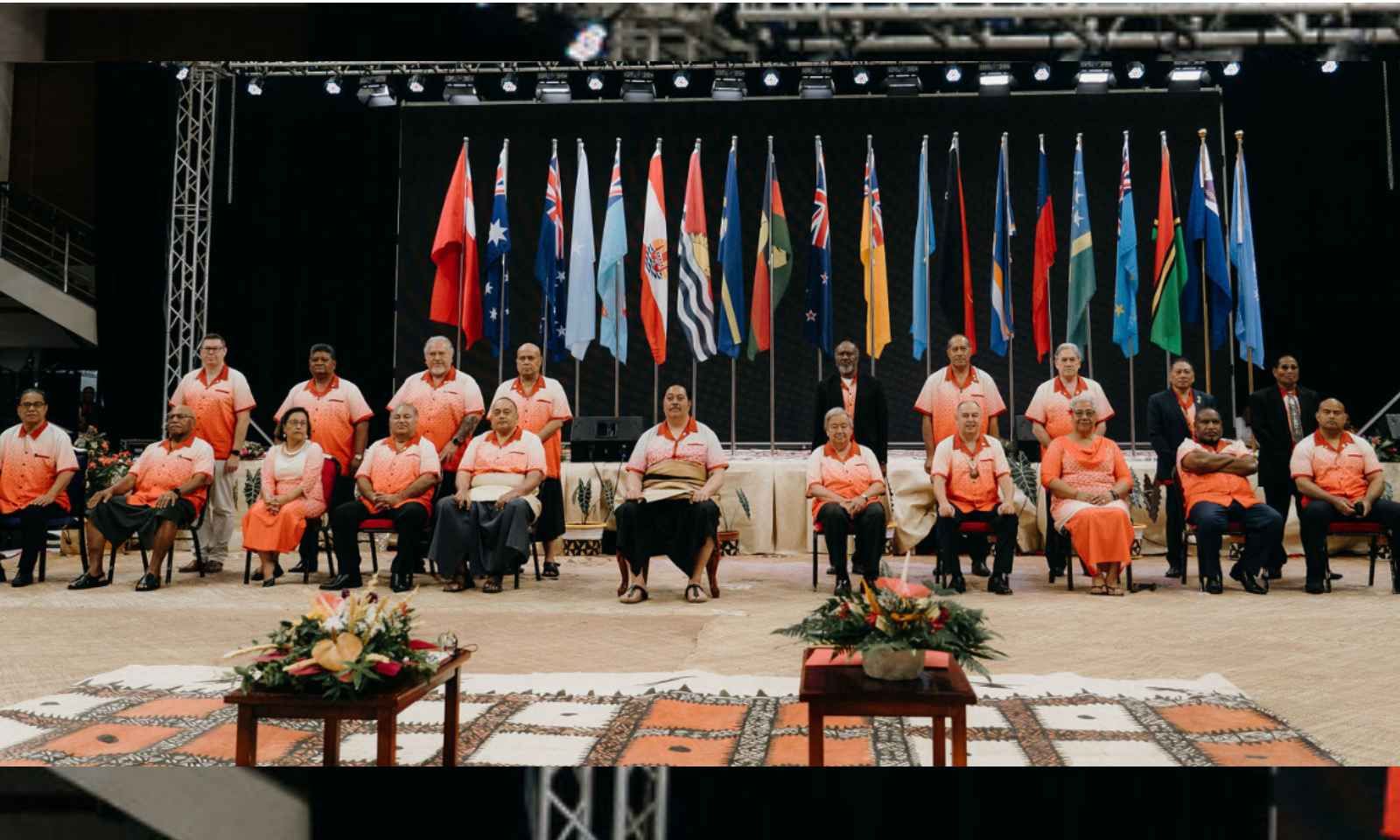

Winston Peters Peters was the Deputy Prime Minister until 31 May 2025, Minister of Foreign Affairs, Minister for Racing and Minister for Rail.
Photo/PMN News/Joseph Safiti
‘Be careful how you treat friends’: Peters warns Forum leaders
Foreign Minister Vaovasamanaia Winston Peters says outside influence is deciding who attends Pacific Islands Forum meetings.



Moana Pasifika end Lautoka curse to win 'Battle of the Pacific'


A.R.T sets new Pacific music pace with ‘First Thursday’ releases



Moana Pasifika end Lautoka curse to win 'Battle of the Pacific'


A.R.T sets new Pacific music pace with ‘First Thursday’ releases
Foreign Minister Vaovasamanaia Winston Peters cautions Pacific Islands Forum leaders about outside influences determining attendance at upcoming meetings.
He urges them to be “very careful how you treat friends” while advocating for a united approach to shaping the region’s future.
The Solomon Islands is hosting next month’s leaders’ summit, and Prime Minister Jeremiah Manele has announced that Dialogue partners, including China and the United States, will not be attending the meeting.
Earlier, his government had denied visas to representatives from Taiwan, who plan to attend the summit.
Peters says there is “no denying” that Beijing has influenced the Solomon Islands’ decision to exclude key Dialogue partners, such as the US and China, from the upcoming Pacific Islands Forum Leaders’ Meeting (PIFLM).
In an interview on Pacific Mornings before attending the Pacific Islands Forum Foreign Ministers’ Meeting (PIFFMM) in Suva, Peters expressed serious concerns about the decision to limit talks at the Honiara meeting.

Winston Peters and Solomon Islands Jeremiah Manele met in Wellington earlier this month. Photo/Supplied
“It's been outside influence and pressure on the Solomon Islands not to invite certain countries, and as a consequence, no countries are being invited,” Peters says.
“Now we can't go forward when we're offshore, dare I say it, in Scandinavia and the Middle East, dare I say it, in places like Switzerland and Germany, asking them to be part of our programme going forward and working together on multi-country funded projects when all of a sudden they've been shut out.”
His comments follow Manele’s decision to exclude 21 donor countries, including the US and China.
Watch Winston Peters' full interview below.
However, the exclusion will not affect institutions like the World Bank, the Asian Development Bank, and civil society groups.
Peters warns that excluding long-standing partners risks cutting off vital support for Pacific projects.
He likens the situation to the Micronesian split in 2021 and argues that prioritising economic development should be more central in Forum discussions.
“We've got to get alongside each other and hopefully in Fiji tomorrow we'll have a chance to talk about that as we go off to the Solomons and take collective control of our own destiny ourselves, but always putting the Pacific Islands Forum and its discussions and its decisions first.”
Peters also addressed tensions with the Cook Islands, referring to it as a “family dispute” due to a lack of consultation over Rarotonga’s agreement with China.
He reiterated that the issue strikes at the very heart of the special relationship between New Zealand and the Cook Islands.

Winston Peters and Cook Islands Prime Minister Mark Brown. Photo/RNZ Pacific
“You cannot have both,” Peters says.
“You cannot say that we have the special relationship where consultation is required, not consult and then say, 'well, that's no matter, in fact, what's wrong with that is that you're acting in a paternalistic and bossy way'. We find that an affront. We've done nothing of the sort. We've always consulted.”
He highlighted New Zealand’s support for the Cook Islands, which includes $192 million in assistance over the past three years, along with benefits like healthcare, pensions, and passports.
“We want a thing called reciprocity and respect, not between New Zealand and them, but between the people who are doing all this.”
Peters plans to join regional counterparts in Suva for the Foreign Ministers’ Meeting, which he says is crucial for reaffirming Pacific-led decision-making ahead of next month’s Leaders’ Meeting in Honiara.

Last year's PIF leaders' meeting was held in Tonga. Photo/PMN News/Joseph Safiti
He says this week’s gathering in Fiji is an opportunity to tackle both external and internal pressures that threaten unity and ensure the Forum remains focused on practical outcomes.
“We'll be pushing the importance of the Pacific Islands Forum and its centrality to the Pacific, the Blue Continent we call ourselves, and the need for us to cooperate and work together on so many projects that are of benefit to all of us.”
Peters also underscored the urgency of action: “There are lots and lots of things to be done in the Pacific, as you know.
“We need to ensure that when we go to these meetings, there's a sense of urgency to get things done, not let things drift.”